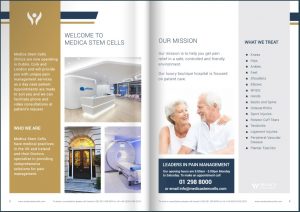What is Systemic lupus erythematosus (SLE) ?
Systemic lupus erythematosus is one of the forms of lupus erythematosus. It is an autoimmune disease in which the body’s immune system attacks its healthy tissues, usually all tissue systems of the body including the heart, kidneys, joints, lungs and even the blood cells.
Symptoms
Systemic lupus erythematosus usually comes with alternating severe and mild symptoms. Symptoms also vary among individuals. With treatment, people suffering with the disease can live a normal life.
Common symptoms include:
• Joint pain and swollen joints
• Severe fatigue
• A characteristic rash called butterfly rash that occurs on the nose and cheek
• Anaemia
• Hair loss
• Dysfunctional clotting system
• Headache
• Tingling sensation of the fingers in cold weather; the fingers can also turn white or blue; a condition referred to as Raynaud’s phenomenon
Some symptoms are particular to the body part being attacked, e.g., heart, skin, excretory and respiratory symptoms.
Causes
The causes of this disease can be broadly grouped into five categories:
• Genetics
• Environment
• Age
• Ethnicity
• Sex and hormones
Genetics
It has been established that SLE runs in families of those with the disease. The specific gene responsible has not been identified, but some genes have been associated with SLE. These genes show polymorphism and have been closely linked. However, the role played, and the degree to which they contribute to the development of SLE is still unknown. Genes in the Human leukocyte antigen (HLA) family have been associated with SLE since they form part of the immune system.
Environment
Environmental factors that can lead to SLE include ultraviolet rays, use of certain medications, physical or emotional stress, viruses, and trauma.
Age
Some age groups are more prone to SLE, though it can develop at any age. It is common in people of age 15-44. The disease is usually acute in younger people. Adolescents who are affected are more prone to the mucocutaneous manifestations of the disease than older patients. People affected at old age usually have high mortality rate due to the devastating manifestations associated with late onset.
Ethnic background
Statistics show that some ethnic groups are more prone to develop Lupus Erythematosus. Some ethnic groups also have better or worse prognosis. The disease most commonly affects people of Asian, African and Native American origin more than Caucasians; though it has a better prognosis in these ethnic groups than in Caucasians. Caucasians who have the disease usually die from complications of cardiovascular and respiratory symptoms and also malignancies.
Sex and hormones
SLE is found to affect females more than males. More so, females usually have serious complications than males, especially during pregnancy and menstruation. These findings have led to the belief that sex and hormones might influence the development of SLE.
Diagnosis
The following procedures are used for diagnosing systemic lupus erythematosus:
• Blood tests: this includes full blood count, clotting profile and antibody tests
• Chest X-rays
• Urinalysis
Treatment
SLE affects people in different ways; therefore treatment is more effective when it is individual-specific. However, there is no cure for SLE. Treatment is aimed at reducing or easing symptoms.
• Use of immunosuppressive drugs, e.g., corticosteroids and hydroxychloroquine. A new immunosuppressive drug, Belimumab, was approved by the U.S Food and Drug Administration in 2011 for the treatment of SLE.
•. Use of anti-inflammatory drugs for joint pain and stiffness.
• Use of steroid cream for rashes.
• Cognitive behavioral therapy (CBT) is employed by support groups and professional counsellors to help sufferers overcome depression, anxiety and stress, and to have a positive mental health, which will help them live their lives normally.
Regenerative Stem Cell Treatment and Possible Forecast
Mesenchymal stem cells are not detected by the immune system, making them very useful for treatment of autoimmune diseases such as systemic lupus erythematosus. In the research conducted, mesenchymal cells administered to SLE sufferers were to some extent recruited to areas where inflammation is taking place. In this way they helped with regenerating the damaged tissue.

